One fringe benefit of living in a town where so many people love cycling is that we are fortunate to be a common stop for authors, thinkers, innovators, and other cycling luminaries. If you have something important or interesting to say about cycling, the thinking goes, there’s a very good chance you’ll find a receptive audience in Portland.
Over the course of the coming week we’ll be treated to a trio of intriguing figures who will share their insights and knowledge with our many bike-curious denizens…
It all starts tomorrow (6/20) when Grant Petersen stops in to fête Rivelo, a new bike shop in southeast Portland. Petersen is the founder of Rivendell Bicycle Works who started Rivendell in the mid ’90s after a stint with Bridgestone. While far from a juggernaut in a financial sense, Rivendell has become a beloved brand for its honest marketing and products that manage to balance a respect for tradition (in both an aesthetic and technical sense) with innovation — but only when and where it’s needed. Petersen is also the author of Just Ride (2012, Workman Publishing) a book whose title embodies his approach to cycling.
Meet Petersen and hear him give a short talk and product demo at around 2:30 pm tomorrow (Saturday) at Rivelo, 401 SE Caruthers, Suite 403. Come at 2:00 for snacks, drinks, and bike ogling. — RiveloPDX.com
Advertisement
On Tuesday (6/23) historian James Longhurst rolls into town. Literally. Longhurst is on a biking book tour for his latest work, Bike Battles: A History of Sharing the American Road (2015, University of Washington Press). Longhurst, an associate professor at the University of Wisconsin – La Crosse with a Ph.D. in history and policy from Carnegie Mellon University, says the book is, “An exploration of the hidden history of bicycle law and policy conflicts in the United States, bringing scholarly research into our current bicycle debates through archival sources and popular culture.”
Join Longhurst for lunch at a talk he’ll give (in partnership with the Bicycle Transportation Alliance) at 12:00 noon on June 23rd at the Oregon Historical Society. — Event info on Facebook
Keeping with the historical theme, veteran bicycle journalist Carlton Reid will be in Portland on June 28th to share insights from his new book, Roads Were Not Built For Cars: How Cyclists Were the First to Push for Good Roads and Became the Pioneers of Motoring (2014, Island Press). Reid, who I first got to know as the editor of Bike Biz, a U.K.-based industry publication, spent four years researching his new book. The very impressive result is a thorough examination of an important part of transportation history that most people are completely unaware of. Not only is this forgotten story interesting in its own right, it also flips the script about who “owns the road” and helps make a powerful case for bicycle advocacy in America.
Reid will host a free event at Velo Cult (1969 NE 42nd Ave) on June 28th at 7:00 pm. — RoadsWereNotBuiltForCars.com.


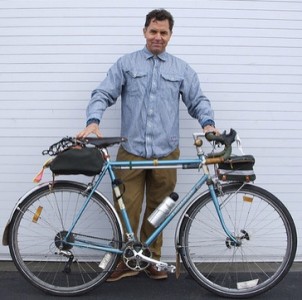
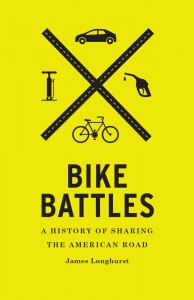
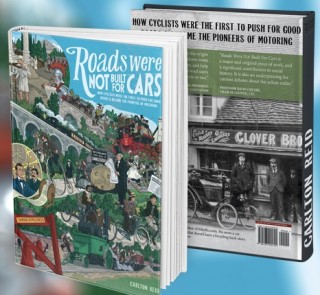
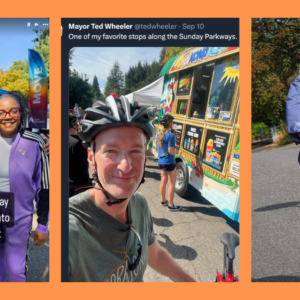


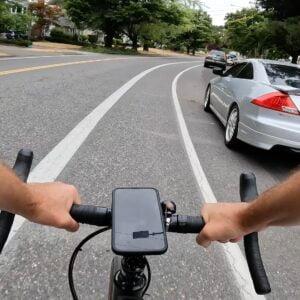
Excellent news. Thanks!
I hope they don’t get hit by an inattentive driver.
I gotta be at Velocult on the 28th. Bicycles were the next step without the horse pie in the America’s. Before the horseless carriage there were horses with their habitual spreading the manure in the cities and byways.
Then the bicycle. The biggest advantage of the bicycle is the fact that a rider could go over 50 miles in a day without killing the horse, and they did not leave an average of 25 pounds of manure per horse on the roads. Can you imagine the stench of having a million horses in Portland.
The Oregon motor manual reflects a lot of the original agrarian nature of the highways and byways.
Pedestrians, Horses, Bicycles, motorized vehicles are the sequence of traffic right of way, beginning at the first.
Or they could outside the bubble where they can preach to the choir and try to talk to other people in Oregon.
@ Tom Hardy – thanks, hope to see you there.
@ Mike – couldn’t agree more, and that’s why I try to give talks outside of cycling circles. For instance, in the UK I gave a talk to the employees of an ethical bank. My next task is to take the talk to motoring organisations (the preface for my book was written by the president of the UK version of the Triple A). I already write articles for a motoring website in which I often mention Roads Were Not Built For Cars – I get some odd comments, as you can imagine.
Yes Carlton. For some real interesting insight into the streets of Portland look into and maybe take a tour of the Shanghi underground in Portland or some of the other historical tours in downtown Portland. Yes the roads and streets were not built for cars or trucks. the streets now are at the level of the third story of many of the original buildings. The streets were mud and cobblestone and filled in with sewage and horse sh**. Some gravel was added after the seawall was built in the late 1800’s. This covered the tunnel structure (original streets)from the pearl to past Pioneer square. It was much better when the bicycles, before cars, began plying the streets of Portland.
Apparently all the bike thinkers this week are white men in their 30s-40s.
Nope–Grant is in his early 60’s. And, what, we wait until 50K people are killed a year by cars and you can’t exist without one anywhere if there isn’t enough “diversity” in post-car thinkers? Please, can’t you see beyond that?
Maybe, just maybe, there are worse things than a PERCEIVED lack of “diversity?”
You’re right. There are older men, too. My apologies for getting Grant’s age wrong from his picture.
I lived in Davis for five years, and was active in the bike community there. When I served on the Bicycle Advisory Commission in Davis, it was predominantly composed of white men.
When I volunteered at the the Bike Collective in Davis, it was skewed to white men (they’re working on it).
The Davis Bicycles! advocacy group, great work though they do, was almost entirely white men.
In the couple years I’ve been here in Portland, I’ve seen the following. Bike Farm is skewed to white men (they’re working on it).
Bike Loud PDX is mostly white men. They’re aware of it, but don’t seem sure what to do about it (neither am I).
Bike Portland has a couple of great authors. They’re both white men.
The one photo I saw of Portland Society was of almost exclusively white women. (It’s fee based, so I don’t attend.) I think there are also a fair number of white women in the active transportation department at PBOT.
Please note that I’m describing great friends, acquaintances, and colleagues. People whose work I respect and appreciate. But there’s no denying it. When was the last time you saw a list of bike thinkers where the white men were the minority?
The Board of Directors at Community Cycling Center.
http://www.communitycyclingcenter.org/index.php/about-us/board-of-directors/
Here’s another way to think about it. Say you have two fields. In one field, you monocrop. In the other field, you plant a diversity of crops, and you rotate. Which field is going to be more productive? Which field is going to offer better yields?
Which field is healthier?
Excellent time to plug next month’s Bicycle Lunch and Learn – we will have two women from Andando en Bicicletas en Cully speaking about their experiences doing bicycle outreach to the Latin American community in Portland. July 16, noon to one at City Hall (click my name for the website). Support for their work has been (and translation for the talk will be) provided by the Community Cycling Center – many thanks to them!
You are certainly correct that we need to expand the range of voices we hear. We’ll continue to work on this thru the Lunch and Learn series, and you can check out some of our previous speakers (including Adonia Lugo, Mychal Tetteh and others) here: https://www.portlandoregon.gov/transportation/34816?a=148218
The white man who gave a talk this afternoon at the Oregon Historical Society was excellent. I learned a great deal. I don’t know if Jonathan & Co. are planning to interview James Longhurst while he’s here but I can’t wait to read his book. Thanks again for the tip.